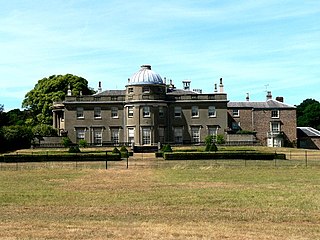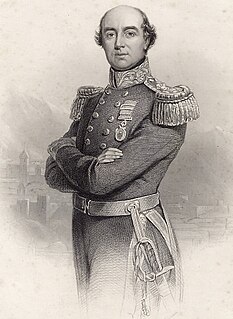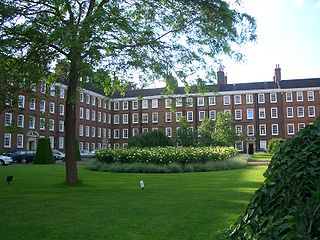There have been two baronetcies created for a person with the surname Bridgeman, both in the Baronetage of England.
Sir Thomas Prendergast, 2nd Baronet was the eldest son of Sir Thomas Prendergast, 1st Baronet, and his wife Penelope Cadogan, sister of William Cadogan, 1st Earl Cadogan. He succeeded his father to the baronetcy in 1709. He was elected to the Irish House of Commons for Clonmel (1727–1760) and to the British House of Commons as Member of Parliament for Chichester (1733–1734).

There have been two baronetcies created for members of the Dashwood family, one in the Baronetage of England and one in the Baronetage of Great Britain. Both creations are extant as of 2008.
Sir Robert Lawley, 5th Baronet was an English landowner and politician who sat in the House of Commons from 1780 to 1793.
There have been four Abdy baronetcies:
There have been two baronetcies created for members of the Blackett family, both in the Baronetage of England. One creation is extant as of 2013. The Blackett family can be traced back to the Blacketts/Blakheveds of Woodcroft, County Durham, some of whom became highly successful in the lead and coal mining industries in Northumberland and County Durham.

Sir George Strickland, 7th Baronet, also known as Sir George Cholmley was an English Member of Parliament and lawyer. He took the name Cholmley to succeed to the Cholmley estates in 1865.

Sir William Strickland, 4th Baronet was an English Member of Parliament (MP) and Government Minister in Sir Robert Walpole's administration.

Sir Thomas Strickland, 2nd Baronet was an English politician who sat in the House of Commons in 1659.
Sir Matthew Boynton, 1st Baronet was an English landowner and politician who sat in the House of Commons in two parliaments between 1621 and 1647. He supported the Parliamentary cause in the English Civil War.
Lieutenant-Colonel William Boynton was an English Member of Parliament.

Sir William St Quintin, 4th Baronet, of Harpham and Scampston in Yorkshire, was an English landowner and Member of Parliament.

There have been twenty baronetcies created for persons with the surname Williams, eight in the Baronetage of England, three in the Baronetage of Great Britain and nine in the Baronetage of the United Kingdom. Only five of the creations are extant as of 2017..
Sir John Stapylton, 3rd Baronet, of Myton in Yorkshire, was an English Member of Parliament.
The Boynton Baronetcy, of Barmston in the County of York, was a title in the Baronetage of England. It was created on 15 May 1618 for Matthew Boynton, son of Sir Francis Boynton of Barmston Hall, in the East Riding of Yorkshire. The Boyntons came to Barmston following the marriage of heiress Margaret de la See to Sir Henry Barmston in the 15th century. The first Baronet married Francis Griffith, heiress of an estate at Burton Agnes including Burton Agnes Hall and Burton Agnes Manor House which the second Baronet inherited in 1647. The fifth and sixth Baronets both served as High Sheriff of Yorkshire, in 1750 and 1771 respectively. The eleventh Baronet died without male issue and the Baronetcy passed to his cousin. His estates however passed to his daughter Cicely whose husband Thomas Lamplugh Wickham changed his name on marriage to Wickham-Boynton, and later (1989) to Cunliffe-Lister relations descended from Mary Constance Boynton, wife of the 1st Earl of Swinton. The title became extinct on the death of the thirteenth Baronet in 1966.
Sir Henry Bellingham, 1st Baronet was an English lawyer and politician who sat in the House of Commons from 1625 to 1626. He supported the Royalist cause in the English Civil War.
Sir James Bellingham, 2nd Baronet was an English politician, lawyer and baronet.
Sir William Hicks, 1st Baronet, of Beverston, in Gloucestershire, and of Ruckholt, in Essex, was an English Member of Parliament.

There have been two baronetcies created for persons with the surname Griffith, one in the Baronetage of England and one in the Baronetage of the United Kingdom. Both creations are extinct.
Sir Thomas George Skipwith, 4th Baronet was an English politician who sat in the House of Commons from 1769 to 1784.









